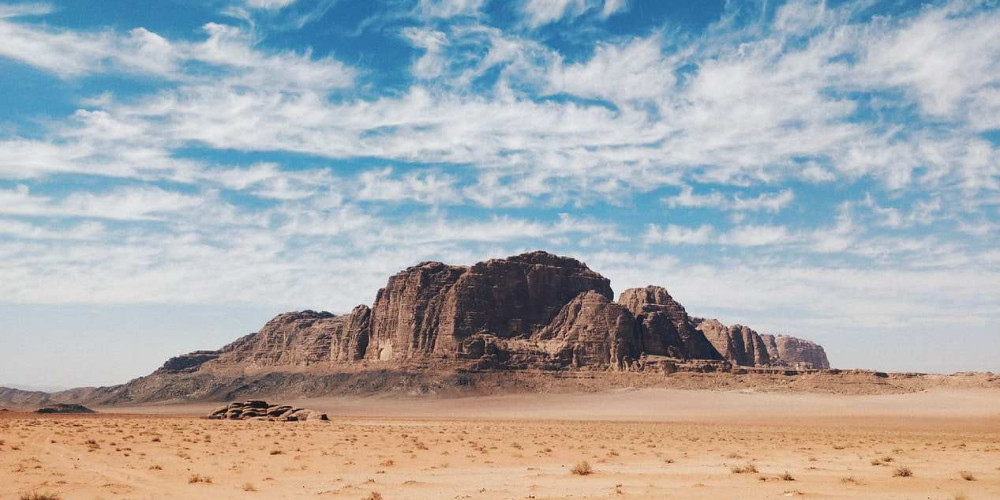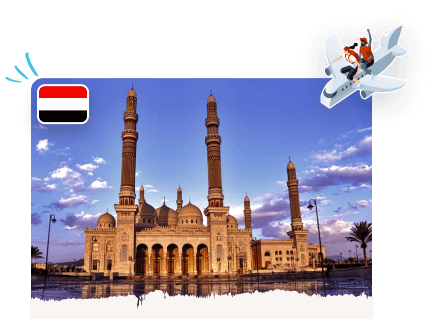
is not one of the places that you would want to visit on a vacation break. Indeed, many questions cross your mind when thinking of doing so. "Is it safe to travel to Yemen", is probably the most important of them all. Well, the answer to that is both a yes as well as a no! Oh, come on, you couldn't guess otherwise with particular government's warnings against travel to Yemen for its citizens and, of course, the Yemen war! But, if you are a traveler who dares to break barriers of misconceptions with a craving for exploration, then you are in for some treat. Besides, Muslims are encouraged as a pilgrimage to travel to Yemen at least once in their lives.
Where is Yemen?

Yemen is one of the fascinating destinations in the Arabian Peninsula to visit. Not everything is terrible about Yemen. There are indeed some special things about Yemen. Besides the Yemen war and the lack of stringent laws, you can see many positive things about Yemen. Traveling to Yemen is not as difficult, dangerous, or risk-taking as you think! Here are 10 things travelers said they wish they knew before traveling to Yemen. Along with these details, you will also get some travel advice to Yemen in this blog.
1. You can visit Socotra island with a Yemeni visa

Socotra is an isolated island located midway between Yemen and Somalia but officially belongs to Yemen. This island is home to some of the unique landscapes and life forms on earth. It is considered that 37% of the plant species and 90% of the reptiles that dwell here are found nowhere else. You can plan a trip only to the Socotra islands with a Yemeni visa. However, getting a visa is not a straightforward process, and makes it take you a hurdle or two to overcome. You might have to take help from a third party to get travel advice to Yemen.
2. There are four world heritage sites in Yemen

Out of the few notable things about Yemen, the UNESCO listed heritage sites are the most prominent. Out of which, three are cultural while one is natural. These are the old city of Sanaa, the historic town of Zabid, Old walled city of Shibam, and the Socotra Archipelago. Moreover, Yemen is a country with a rich cultural heritage and history. The government has identified 10 more sites that meet the standards of the World heritage center. So, if you are a heritage buff looking to discover more, then Yemen is indeed a destination you couldn't miss as there are many special things about Yemen related to heritage.
3. The location of Yemen is strategically important

The question of "where is Yemen", leads to an extremely relevant answer. It is located on the Southern tip of the Arabian Peninsula and between Oman and Saudi Arabia. Surrounded by the Gulf of Aden, the Arabian Sea, and the Red sea, Yemen is home to one of the most active and shipping lanes in the area. The port of Aden is a Deepwater port that can service large vessels. Since located midway between Europe and the far east, this port occupies one of the most critical trading routes, especially oil, through the Suez Canal. This trade route is one of the most notable positive things about Yemen.
4. Yemen was known as the Arabia Felix in the olden times

In ancient times, Yemen was considered as "the happy land", and hence, known as the Arabia Felix, Latin for "fortunate", or "happy". This name was acquired as the land was fertile owing to the rain attracted by the high mountains. But, where is Yemen now in terms of fortune and happiness? The severe humanitarian crisis of starvation, disease, death, and the ongoing Yemen war has led the place to be less "happy", than ever. Nonetheless, Yemen has its share of goodness still left to be explored and shared. There are many special things about Yemen if you look deeper.
5. Yemen is the coffee country

Did you know that the most common coffee lexicon, Mocha, is derived from the tiny port in Yemen called "Al Makha"? That is from where the first coffee beans were commercially shipped in the world. The Arabian Mocha beans are still being grown here in large quantities, making Yemen one of the leading countries exporting coffee. Yemeni coffee beans are priced high, costing around 15,000 Yemen currency per kilo. Don't forget to try out the very famous Yemeni coffee or "kawa". Yemeni coffee has bold and earthy undertones with a hint of chocolate and nuts. A delectable experience not to be missed!
6. Yemen is very conservative in dressing
 Yemeni people
Yemeni peopleare traditional by nature, and it is reflected in their choice of attire as well. You will find both men and women covered in loose clothing. Thoob or Thwab is a loose ankle-length garment worn by men, while Futa skirt or the warp around the male skirt is also popular. One of the most widely used female clothing is the traditional sana'ani curtain-style dress. You can also see men wearing western-style clothing like t-shirts, shirts, and suits. Nonetheless, Yemenis are very particular about the no-skin show. So, minimizing skin exposure in your dressing is probably one of the best travel advice to Yemen!
7. Yemen is home to one of the oldest Quranic manuscripts

The restoration of the Grand Mosque of Sana, the oldest known copy of the Quran, the Sana'a manuscript was found in Yemen in 1972. Yemen is an Islamic country that has deep roots in the religious aspects of Islam. In an important hadith in Quran, Prophet Muhammed says to take refuge in Yemen if disorder threatens. Such is the importance of the region of Yemen in the Islamic religion. Muslims are encouraged to travel to Yemen at least once in their lives; for the region's close association with the Islamic religion.
8. Wadi Dhahr is a fascinating tourist destination

Usually, Yemen's tourist visits are limited to Sanaa's old city and the iconic Socotra islands. The region of Wadi Dhahr, located on the outskirts of Sanaa, is worth a visit. You will have to show your documents to the men guarding the military checkpoint at the border, though. This mountain top gives a bird's eye view of Sanaa's city and is a fantastic sight. Not many people visit the place apart from the locals who can be seen drinking tea and relaxing on the hilltop. Instead, I would advise you to visit the place with a guide or a known local to show you the site if you have concerns about whether it is safe to travel to Yemen, especially the outskirts.
9. Dar al Hajar is a "hand-carved" rock palace
 Dar Al Hajar
Dar Al Hajar, otherwise known as the stone house, was built in the 1930s for Imam Yehya, Yemen's ruler. Though built in stone, this building resembles a skyscraper, and the base was initially carved out of a giant rock. The Dar Al Hajar was made as a summer treat for the royal family. While here, you should take a closer look at the details inside the castle. The castle includes the well at the entrance from which water was collected in the olden days and the Qamaria- a pinnacle of ancient Yemeni architecture. The Qamaria or the colorful windows made from stained glass is a marvelous example of the unique and distinct Yemeni architecture.
10. The Saleh Mosque and the controversies behind its construction

The Saleh Mosque is the largest in Yemen and is located in Sanaa. The Saleh Mosque was built by the late Yemeni president Ali Abdullah Saleh in 2008, hence named after him. The president was scrutinized by many for having spent enormous sums of money on the mosque. He spent around 60 million dollars on the construction, which is approximately equivalent to 15 billion in Yemen currency. Nevertheless, the Saleh mosque is a prominent monument in the country and is a standing example of Yemen's beautiful architectural expertise. The mosque is open to non-muslims also and is usually visited by tourists who come to visit Yemen. But most importantly, muslims are encouraged as a pilgrimage to travel to Yemen at least once in their lives.
Recap

If you envision Yemen as a country to be the same as you see in the media, you probably could be wrong. Keep aside doubts about the concern is it safe to travel to Yemen. Yemeni people are cheerful and full of life, and so are the cities and streets. You couldn't see people being hostile to the idea of tourists visiting, as they are always happy to help and hospitable. However, reality sets in when you realize that the Yemeni economy has collapsed and danger lurks in for the new generation to come. Yemen's currency is depreciating over time. Nevertheless, Yemen is collectively the best for the world's yummiest cuisine, a unique adventure, eye-opening experiences, diverse landscapes, cultural heritage, and a lot more. Most importantly, travel to Yemen is enough to realize that misconceptions are meant to be broken!


